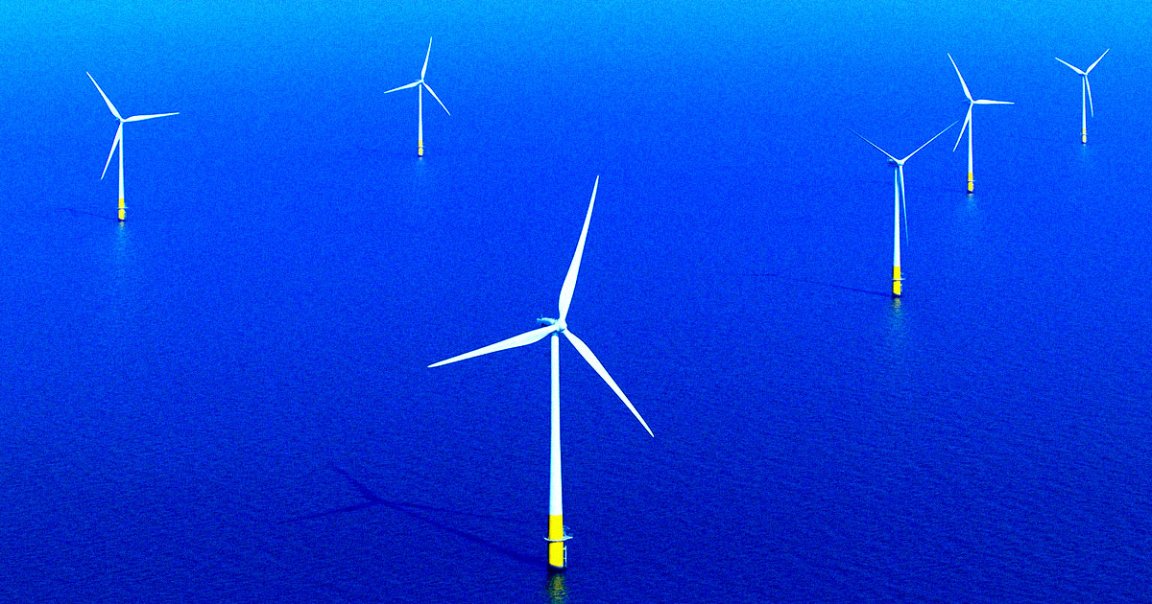
Earlier this month, a 360-foot blade of a wind turbine off the shore of Nantucket shattered.
The bizarre event, which experts believe was caused by a thunderstorm, led to nearby beaches being flooded with massive pieces of sharp fiberglass, leading to outrage among local residents.
Fishermen were furious, accusing the company behind the wind farm Vineyard Wind of turning a blind eye.
And then, of course, pundits who oppose green energy started using the incident to decry renewable power.
But while the turbine’s operator Vineyard Wind should be held accountable, the fallout absolutely pales in comparison to environmental tragedies caused by the fossil fuel industry — like an oil spill, which is vastly more damaging event.
You might recall one example, when the oil drilling rig Deepwater Horizon exploded and sank in April 2010, causing millions of oil to flood the Gulf of Mexico and cause an incomprehensible amount of damage to the local environment, with officials suggesting that more than 25,000 marine mammals were harmed.
In short, while a federal investigation into Vineyard Wind incident is gaining steam, we shouldn’t lose sight of the fact that the risks for renewable energy are dwarfed by the ecological destruction caused by activities like oil drilling, fracking and mountaintop removal.
There are over 150 oil and chemical spills in US waters every year, according to the Office of Response and Restoration. While modern wind turbines have been known to catch fire or leak lubricating fluids, government data shows that those incidents are rare. Oil spills, on the other hand, are notoriously difficult to contain, measure, and even detect. In comparison, floating chunks of fiberglass are less harmful and far easier to identify and dispose of.
That’s not to say green energy providers are off the hook for safety. Vineyard Wind has since shut down operations, but several other wind farm projects are still active in the area, as the Vineyard Gazette reports.
Local Wampanoag Tribe of Gay Head (Aquinnah) tribal council chair Cheryl Andrews-Maltais called for the government to slow down and tread more carefully.
“They should be shutting down every single offshore wind project until they know what is going on,” she told the newspaper. “We warned them of these potential catastrophic failures.”
The Gazette reported last week that the splintered wind turbine was caused by a defect that manufacturer GE Vernova failed to spot.
On a larger scale, the state of Massachusetts is looking to make headway in the renewable energy sector by taking on several new bids for energy contracts.
“The offshore wind industry is a critical component of Massachusetts’ economy and the country’s transition to clean, affordable energy,” governor Maura Healey told the Gazette in a statement. “It is essential that we gain a full understanding of what happened here and how it can be prevented in the future.”
More on the incident: Beaches Covered in Shards and Debris as Giant Wind Turbine Shatters